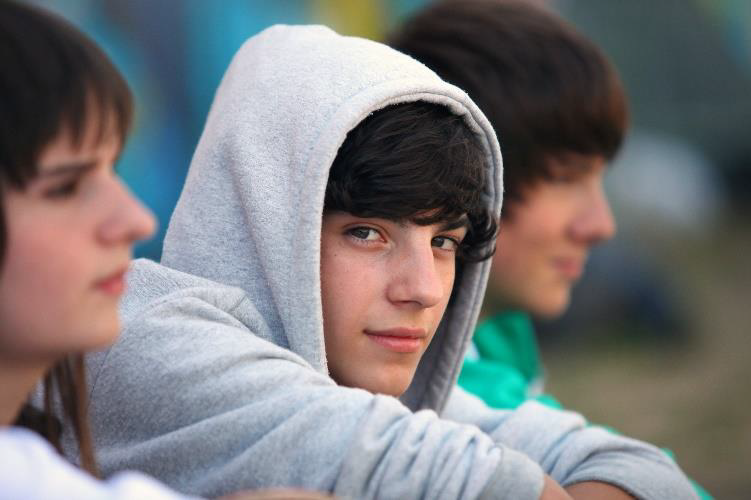
Youthline ‘State of the Generation’ report reveals rangatahi in a mental health crisis. Climate and economic anxiety taking a further toll.
Latest research on the ‘State of the Generation’ reveals that economic uncertainty and extreme weather have emerged as major concerns for New Zealand’s youth in 2023. More broadly, mental health persists as the dominant issue for 13 to 24 year olds across Aotearoa.
According to not-for-profit youth organisation Youthline’s ‘State of the Generation’ report, three in four young people agree that mental health is a problem for their generation.
The research uncovered a direct link between the psychological impact of climate change and the mental health struggles experienced by young individuals. Recent extreme weather events, rising temperatures, and environmental degradation were identified as significant stressors that contribute to anxiety, depression, and feelings of hopelessness among youth.
Completed by Kantar Public, the research sought to understand the issues young people from across Aotearoa New Zealand face in 2023. Mental health (including anxiety, depression, suicide and stress) was identified as the biggest issue by 82% of the young people surveyed, and this was consistent across Aotearoa.
“Unfortunately, this finding comes as no surprise to our team at Youthline, we’ve seen a 65.5%% increase in risk in the last 3 years from the Helpline data. We have also seen a 10% increase in suicide risk in our counselling service and the need for our counselling and support services increase by 30% in the past year. One in 10 young people have used our services,” says Youthline CEO, Shae Ronald.
However, what is new is that economic uncertainty has become a significant concern for young people, with 10% identifying it as the biggest issue facing young people, compared to just 4% in 2021.
“The rise of economic uncertainty and extreme weather events as prominent concerns for young people is pronounced, and shows youth wellbeing is being directly impacted by the wider issues New Zealand society is facing in 2023,” says Ronald.
“These findings are a wake-up call for society,” says Shae Ronald, “The mental health of our youth is at stake as climate change and economic instability continue to take their toll. Urgent action is needed to address these issues and provide targeted support to vulnerable populations.”
One in four young people surveyed said they had been affected by recent extreme weather events, and of those two in four reported stress or mental health issues have been made worse as a result.
“Having directly experienced the effects of climate change, young people are now fearful more extreme weather will occur in the future. Our rangatahi reported a sense of feeling powerless
and are worried about the ongoing safety of themselves and their whanau. The impact of the floods earlier in the year also meant that access to basic needs was difficult which again impacted young people’s mental health line anyone else.”
“As we’ve already witnessed through youth advocacy over recent years, there was also a clear feeling of frustration about the lack of collective action against climate change.
“This report should act as a clear signal to all our politicians in the lead-up to the general election; these are the issues young people in Aotearoa want addressed.
“I’d encourage all political parties to answer the call and clearly state what actions they intend to take on these critical issues,” says Ronald.
Half of the young people surveyed by Kantar Public view social media as another fundamental issue facing their generation, particularly its effect on mental health and potential to cause social problems including increased levels of bullying. While they are concerned about social media and its ability to spread misinformation and negatively impact relationships, body image and confidence, it is also the best way to reach them.
The report also highlighted the disproportionate burden faced by minority communities, including neurodiverse youth, who often bear the brunt of climate and economic anxiety. They face compounded challenges due to systemic inequalities, limited access to resources, and increased isolation exacerbating mental health disparities.
Vaping is also now perceived as a leading problem by 46% of those surveyed, most notably among young teens aged 13 to 15 years. It is seen as more of an issue than other substances such as smoking, alcohol and drugs by those aged 16 to 24 years.
As an organisation focused on empowering young people within their communities, Ronald says it was important for Youthline to identify where rangatahi are going for support, and why they might not reach out.
“Young people identified in-person counselling support as the best support method. In their words, in-person counselling means they can develop deeper relationships, trust and understanding.”
The research found that of those who hadn’t reached out for support before, aside from not feeling the need to seek help, the main reason is because they think their problems are too small.
“It’s crucial that through donations and funding, support organisations like our team at Youthline are able to continue providing life-saving support to young people struggling with their mental health, and they feel welcome 24/7,” says Ronald.
“We want rangatahi to feel that their feelings are always valid and worthy of support. That they are never alone. That’s how we can start to turn around the issue of mental health in Aotearoa.”
